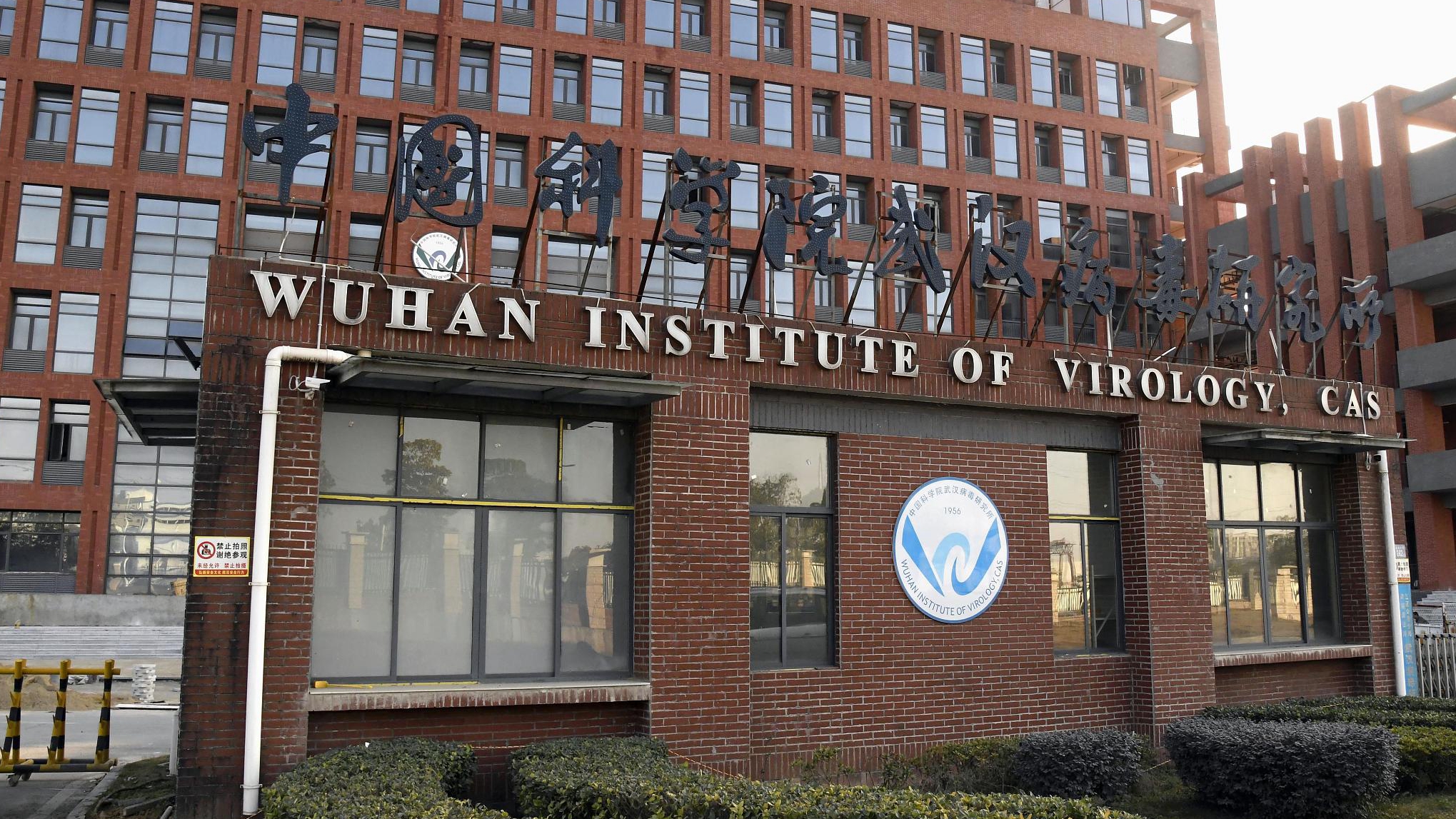
Wuhan Institute of Virology in Wuhan, Hubei Province, central China, January 14, 2021. /CFP
Wuhan Institute of Virology in Wuhan, Hubei Province, central China, January 14, 2021. /CFP
Editor's note: Anthony Moretti is an associate professor at the Department of Communication and Organizational Leadership of Robert Morris University. The article reflects the author's views and not necessarily those of CGTN.
One of the most intelligent men to ever walk the face of the Earth once said something that was, not surprisingly, really smart: The definition of insanity is doing the same thing over and over again and expecting a different result.
It is a shame Albert Einstein is not alive today because he could deliver that message to many people in the United States media and political elites who are determined to convince you and me that the "lab leak" theory to explain the origin of the coronavirus pandemic must remain at the forefront of our thoughts.
They keep saying the lab leak theory is credible, and the available evidence continues to refute this. This never-ending cycle does seem to fit Einstein's description of insanity.
Allow me to put my cards on the table: I am no scientist, but I believe the investigation already undertaken by the scientific community has made abundantly clear that it is highly unlikely – if not improbable – that the lab leak theory has any credibility. I am confident in stating that the top notch work already done by scientists refutes any effort by anyone to point a finger of blame at the highly trained professional crew that worked inside the Wuhan Institute of Virology when the coronavirus pandemic began.
Yes, I know by making such a statement I will be accused of being a sellout, someone who is happy to do Beijing's bidding while ignoring reality. My reply is simple. The facts that we have at the moment are quite clear: The lab leak theory lacks any substance. By extension, the only reason I can see to continue pursuing it with such vigor is because there remains a chronic need in the West to undermine the credibility of China on the global stage.
Of course, at the end of the day, neither your opinion nor mine matters. The facts do. And I repeat that the facts we have are rather obvious.
As a result, you cannot blame Chinese officials for being exasperated. Week in and week out they must respond to the latest lab leak pronouncement emanating in the West. But a few days ago, the Chinese decided to fight back. Speaking to a room full of journalists, Vice Minister of the National Health Commission Zeng Yixin basically said enough is enough.

Official Washington wants us to remember that potentially dubious reporting, while it also appears disinterested in listening to the words of an Australian scientist who was working alongside the Chinese inside the Wuhan lab in late 2019. /CFP
Official Washington wants us to remember that potentially dubious reporting, while it also appears disinterested in listening to the words of an Australian scientist who was working alongside the Chinese inside the Wuhan lab in late 2019. /CFP
He forcefully told the gathered media that China can't accept the World Health Organization's plan to restart an investigation into the work done by the scientists inside the Wuhan Institute of Virology. He correctly stated that no legitimate scientific effort can follow from an investigation now, roughly 20 months after the beginning of the pandemic. Vice Minister Zeng was joined by the institute's biosafety director Yuan Zhiming, who said, "The Wuhan Institute of Virology has never designed, made or leaked the novel coronavirus."
We know such statements never will be good enough for Western leaders, so none of us should be surprised that the White House was quick to dismiss what the Chinese officials had said. "Deeply disappointed" were the words used to describe how American officials felt after hearing from Zeng and Yuan. The White House spokesperson soon added she believed it was "irresponsible and, frankly, dangerous" for the Chinese to rebuff the World Health Organization.
We cannot forget one important reason the U.S. continues to advance the lab leak idea. A Wall Street Journal report claimed at least three scientists inside the Wuhan lab had become ill in November 2019, mere weeks before the virus began spreading rapidly throughout China and then the world. Official Washington wants us to remember that potentially dubious reporting, while it also appears disinterested in listening to the words of an Australian scientist who was working alongside the Chinese inside the Wuhan lab in late 2019.
Dr. Danielle Anderson gave a lengthy interview to the Bloomberg News agency about one month ago, and she provided some of the most important evidence dismissing the Wall Street Journal's reporting.
Dr. Anderson said, "If people were sick, I assume that I would have been sick – and I wasn't."
She also told Bloomberg that she was tested for coronavirus soon after she left China, and the test came back negative.
Dr. Anderson left China in late 2019 once a grant associated with her work had come to an end. But only weeks later, at an important scientific gathering, she said not one person in attendance had heard of any Chinese scientists being ill. "Scientists are gossipy and excited," Dr. Anderson told Bloomberg. "There was nothing strange from my point of view going on at that point."
What are we left with? A recognition of raw politics. The West must press ahead with the lab leak idea because it aligns well with its longstanding narrative that the Chinese cannot be trusted. Recognizing that the Western media likes controversy, continued calls for another investigation can be packaged by the media to affirm to their audiences that there had to be something fishy going on inside that lab. Why else would American officials keep demanding an investigation?
Yes, Mr. Einstein, this is crazy.
(If you want to contribute and have specific expertise, please contact us at opinions@cgtn.com.)

